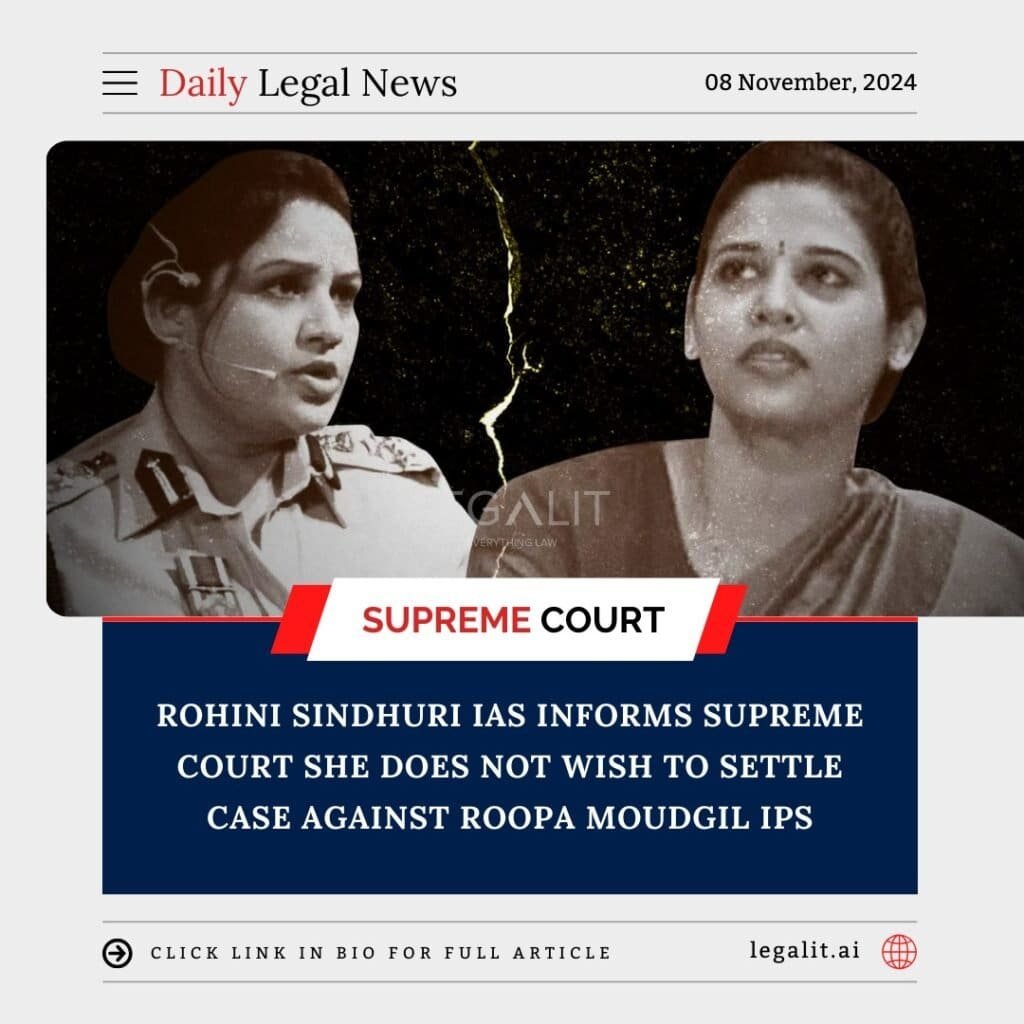
Rohini Sindhuri, an Indian Administrative Service (IAS) officer, recently informed the Supreme Court of India that she does not wish to settle her ongoing legal case against Roopa Moudgil, an Indian Police Service (IPS) officer. The matter revolves around allegations made between the two officers, and Sindhuri’s statement indicates her intent to proceed with legal action.
Background:
The case between Rohini Sindhuri and Roopa Moudgil involves allegations and counter-allegations that have caused public and legal scrutiny. Sindhuri had earlier filed a case against Moudgil for defamation and misconduct. However, during proceedings, there were discussions around the possibility of an out-of-court settlement. Despite these discussions, Sindhuri has made it clear that she does not wish to resolve the matter through settlement.
Court’s Rationale:
The Supreme Court, in hearing the case, acknowledged Sindhuri’s decision to continue with the legal proceedings. The Court emphasized that while settlements are encouraged, the decision ultimately rests with the parties involved. The bench noted the importance of allowing the legal process to unfold if one of the parties chooses to pursue the case in court rather than opting for a settlement.
Existing Measures:
In matters of defamation or personal grievances between public officers, the Indian judiciary typically provides an avenue for resolution, including both litigation and settlement. However, the decision to settle or pursue a case legally remains at the discretion of the concerned parties, particularly in cases involving public figures.
Conclusion:
Rohini Sindhuri’s refusal to settle her case against Roopa Moudgil highlights the complexity of legal disputes between public officers, especially when personal reputations are at stake. The Supreme Court’s decision to allow the case to proceed reflects the legal framework’s respect for individual choices in the pursuit of justice. This case serves as a reminder of the importance of due process and the autonomy of individuals in resolving legal matters.